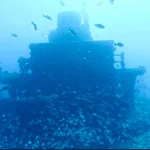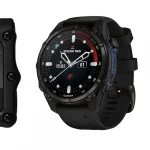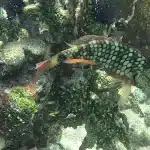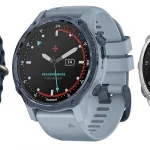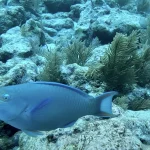Diving Deep into Education at the College of the Florida Keys
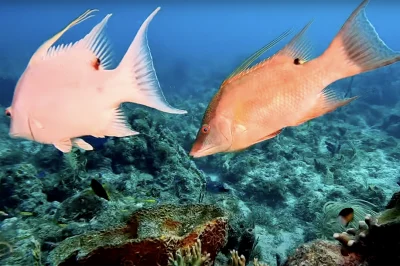
Table of Contents
- Diving Deep into Education at the College of the Florida Keys
- Dispelling Myths About Marine Ecosystem Education
- Top Mistakes Divers Make in Coral Conservation and How to Avoid Them
- The Future of Marine Education: Innovations to Watch
- Comparing Key West’s Marine Education Centers: A Statistical Outlook
- Maximizing Your Dive Trips with Local Knowledge
- Uncovering Hidden Gems: Lesser-Known Education Centers in Key West
- The Economic Impact of Diving Schools on Key West Tourism
Introduction
Embarking on a scuba diving adventure in Key West offers more than just thrilling underwater experiences. For those eager to learn more about marine life and ecosystems, Key West boasts an array of marine education centers that provide invaluable insights into the underwater world. This blog post serves as a comprehensive guide to the best marine education centers in Key West, tailored for curious divers ready to make the most of their trip.
Diving Deep into Education at the College of the Florida Keys
Common Myths About Marine Education in Key West
Visiting Key West for scuba diving offers not just the thrill of exploring underwater ecosystems but also the chance to engage in marine education. However, several myths surround this educational aspect which can mislead divers.
Myth 1: Scuba Diving Certification Requires Extended Training
Reality: In Key West, divers can enrol in structured certification programmes that expedite the learning process. For example, the PADI Open Water course can be completed in just a few days. The shallow, calm waters—typically around 20 to 30 feet—provide ideal conditions for mastering skills with minimal physical exertion.
Myth 2: Marine Education is Limited to Observing Marine Life
Reality: Learning is dynamic at marine centres in Key West. Organisations like Dolphin’s Plus offer hands-on programmes, including snorkelling and kayaking, coupled with conservation efforts like coral restoration and debris clean-up. This approach fosters active participation and environmental responsibility rather than passive learning.
Myth 3: Certification Must Be Pursued Through Private Dive Shops
Reality: Formal education programmes are available. Florida Keys Community College (FKCC) provides associate degrees and certifications in marine-related fields such as environmental technology and dive business. Their specialised facilities, including underwater training platforms, enable technical and scientific diving courses.
Myth 4: Shallow Waters Impede Varied Diving Experiences
Reality: Key West features shallow reefs ranging from 5 to 50 feet, allowing for prolonged training and exploration of vibrant ecosystems, shipwrecks, and underwater caves. The reduced water pressure enhances visibility and safety, making it suitable for both beginners and seasoned divers.
Myth 5: Marine Education Lacks a Focus on Conservation
Reality: Marine education in Key West integrates conservation, as demonstrated by initiatives like the PADI AWARE Foundation. Many courses include segments on sustainable practices and emphasise the importance of coral reef conservation and marine debris removal, aligning education with environmental stewardship.
Dispelling Myths About Marine Ecosystem Education
Marine Education Programmes at the College of the Florida Keys
The College of the Florida Keys (CFK) serves as a leading hub for marine education, catering specifically to the needs of diving enthusiasts and future maritime professionals. Located in Key West, this institution has established a reputation for offering comprehensive programmes that encompass essential skills for the diving industry.
- Diving Business and Technology: This programme prepares students for a career in the diving sector by focusing on operational and safety standards. Courses cover essential topics such as dive management and the technicalities of diving equipment.
- Marine Engineering, Management, and Seamanship: Offered as an Associate in Applied Science degree, this programme is designed to equip students with both the technical knowledge and practical skills required to excel in various maritime industries.
- Certificates and Non-Credit Courses: CFK provides additional certifications in Marine Technology, Welding, and small boat handling, which further complement diving activities by enhancing technical proficiency in related fields.
The strategic location of CFK, nestled between the Gulf of Mexico and the Atlantic Ocean, allows students to gain hands-on experience in diverse marine environments. This exposure is invaluable, as it enables practical learning and prepares students for real-world challenges in scuba diving and marine operations.
Key Distinctions
In 2024, CFK was designated as a Center of Excellence for Domestic Maritime Workforce Training by MARAD, reflecting its commitment to quality education in marine fields. This recognition sets CFK apart from other marine education centres in the area, such as the Florida Keys Eco-Discovery Center and Keys Marine Lab, which primarily focus on environmental and ecological studies without dedicated scuba diving training programmes.
Exploring Diverse Educational Opportunities
For scuba diving enthusiasts visiting Key West, CFK’s programmes present an excellent opportunity not just for education but also for potential career pathways within the diving industry. Engaging in these programmes can significantly enhance one’s understanding of marine environments while developing crucial industry-related skills.
Top Mistakes Divers Make in Coral Conservation and How to Avoid Them
Digital Learning Platforms and Personalisation
With technology advancing rapidly, online learning modules and virtual webinars are becoming prevalent in marine education. Tools like Starlink enable continuous learning in remote locations, allowing divers to access valuable resources even while at sea. Platforms such as Moodle are being used to create structured courses that can be tailored to individual learning preferences, enhancing the overall experience for scuba divers.
AI-Driven Simulations and Virtual Training
The integration of generative AI is transforming how divers learn by providing adaptive simulations that mimic real-world scenarios. These advanced systems allow for safe practice in skills critical to diving, such as navigation and emergency responses. For instance, divers can train for unexpected challenges, such as strong currents or equipment failures, through virtual environments that replicate these dynamic conditions.
Hands-On Technical Training with Open-Source Tools
Emerging technologies like Arduino-based systems are gaining traction as vital educational tools in marine training. These platforms offer an affordable means for learners to engage with electronics and automation, which are crucial for underwater exploration. By using hands-on projects, aspiring divers can build and troubleshoot devices that enhance their underwater experiences.
Sustainable Practices in Marine Education
As environmental concerns grow, training programmes increasingly incorporate sustainable technologies, focusing on eco-friendly practices. Courses may cover topics like electric and hybrid propulsion systems, helping divers understand their impact on marine ecosystems. Such education not only raises awareness but also equips divers with the knowledge to adopt practices that lessen their ecological footprint.
Real-World Applications and Industry Collaboration
Events like the Modern Day Marine 2025 conference highlight the importance of practical skills in marine education. These showcases offer hands-on experiences with cutting-edge equipment and foster partnerships between educators and industry leaders. Additionally, conferences such as the Eighth Biennial Marine Transportation System Innovative Science and Technology Conference provide platforms for discussing advancements that improve safety and security in marine environments.
Key Takeaways for Diver Education
- AI-optimised training: Customised simulations for diverse underwater scenarios.
- Open-source innovation: Cost-effective tools like Arduino for technical skill-building.
- Sustainability integration: Training on eco-friendly propulsion and environmental stewardship.
- Industry partnerships: Exposure to real-world technologies through exhibitions and conferences.
The Future of Marine Education: Innovations to Watch
When visiting Key West, scuba divers have an array of educational opportunities available at various marine education centres. These centres not only enhance your diving experience but also contribute to the conservation of fragile marine ecosystems. Here’s a closer look at several key facilities:
Pigeon Key Marine Science Center
Pigeon Key stands out for its immersive educational programmes, including all-inclusive marine science field trips that encompass snorkelling at Sombrero Reef. Priced starting at $540 per person, these trips offer a unique multi-day experience. The center has successfully engaged over 30,000 participants from more than 1,000 schools, showcasing its significant impact on marine education.
MarineLab
MarineLab emphasises community engagement and STEM education with programmes tailored for local youth. They host summer snorkelling camps, family science days, and teacher workshops. This centre’s commitment to integrating scientific learning with hands-on experiences enriches the curriculum for young divers. MarineLab’s programmes are designed to foster a deep appreciation for marine habitats among participants.
College of the Florida Keys
Situated within the Florida Keys National Marine Sanctuary, the College of the Florida Keys provides an integrative marine science curriculum that utilises the sanctuary’s extensive resources. This educational focus not only prepares students for the workforce but also promotes sustainable practices within the diving community.
Dolphin Research Center
This centre specialises in marine mammal education, research, and rescue efforts. It offers unique programmes that highlight the importance of coexistence and communication with marine mammals, such as dolphins. Engaging in a visit can enhance your understanding of these creatures’ roles in the ecosystem and the challenges they face.
Florida Keys Eco-Discovery Center
Accessible to the public, the Florida Keys Eco-Discovery Center operates with free admission and is open Wednesday through Saturday. This centre features various educational exhibits about local ecosystems, allowing visitors to gain insights into the marine environment before or after their diving trips.
Key Comparison Insights
In summary, each of these centres offers unique programmes, focusing on different aspects of marine education. Whether you’re looking for hands-on snorkelling experiences, teacher workshops, or insights into marine mammal conservation, Key West’s marine education centres provide invaluable resources for divers and marine enthusiasts alike.
Comparing Key West’s Marine Education Centers: A Statistical Outlook
Expert Guidance from Local Dive Specialists
Key West dive operators employ PADI-certified instructors and guides with deep knowledge of regional ecosystems and site-specific conditions. These experts:
- Maximise marine encounters by identifying hidden species like octopus, tropical fish, and shipwreck inhabitants.
- Optimise dive planning for currents, visibility, and reef structure, ensuring safer navigation in shallow waters.
- Provide personalised training in small groups, tailoring instruction to individual needs.
Shallow, Accessible Dive Sites
The Florida Keys’ barrier reefs feature shallow depths (5–30 feet), ideal for training and recreational diving:
- Extended bottom time: Reduced nitrogen absorption allows longer, safer dives.
- Vibrant marine life: Abundant sunlight highlights colourful corals, fish, and shipwrecks.
- Ease of navigation: Low currents and clear visibility simplify orientation.
- Beginner-friendly: Shallow reefs (5–20 feet) enable stress-free training for beginners.
Biodiverse Ecosystems
Key West’s dive sites within the Florida Keys National Marine Sanctuary include:
- Living coral reefs teeming with tropical fish, rays, turtles, and lobsters.
- Shipwrecks (e.g., the USNS General Hoyt S. Vandenberg) for wreck diving experiences.
- Sunken vessels and aircraft, offering structured exploration of artificial reefs.
Local guides enhance these experiences by identifying hidden species (e.g., moray eels, octopus) and explaining ecological connections.
Streamlined Certification Programmes
For new divers, Key West offers:
- Discover SCUBA Diving courses, allowing first-time divers to experience real reef dives within hours.
- PADI Open Water Certification tailored to shallow conditions, qualifying divers up to 60-foot depths globally.
- Skill progression toward advanced roles (e.g., Rescue Diver, Divemaster) in a diverse underwater environment.
Protected Marine Habitats
Diving within the sanctuary ensures minimal environmental impact while accessing pristine ecosystems, including:
- Coral gardens in shallow waters (5–20 feet).
- Migratory fish pathways (e.g., Barracuda, Cobia) for advanced divers.
By leveraging local expertise and unique ecological conditions, Key West provides a comprehensive diving experience that combines education, adventure, and environmental stewardship.
Maximizing Your Dive Trips with Local Knowledge
Exploring Lesser-Known Marine Education Centers in Key West
While many divers flock to the well-known marine education centres in Key West, there are hidden gems that offer unique experiences often overlooked. These centres may focus on niche educational aspects or specific marine ecosystems, enriching the adventures of scuba enthusiasts seeking deeper knowledge and engagement.
The Florida Keys Eco-Discovery Center, located at 35 Quay Road, stands out as a local favourite. Open Wednesdays through Saturdays from 9 AM to 4 PM, this centre emphasises eco-discovery and offers educational programmes that highlight the ecological significance of the Florida Keys. While specific diving programmes are not prominently advertised, their connection to marine ecosystems suggests potential snorkelling or introductory dive opportunities—contacting them directly for specifics is recommended.
Another notable establishment is MarineLab, located in the Middle Keys, which specialises in hands-on marine science education. Although it’s outside Key West, it offers structured activities such as snorkelling-focused summer camps and teacher workshops designed for families and students alike. This emphasis on practical engagement with marine environments facilitates unforgettable experiences for younger audiences and budding divers.
For diving enthusiasts interested in research and academia, the Keys Marine Lab at mile marker 68.5 is a notable mention. Operated by the Florida Institute of Oceanography, it serves as a full-service research station providing access to diverse ecosystems, including Florida Bay and the Keys’ national marine sanctuary. While primarily geared towards college education and research, it contributes significantly to marine science understanding, albeit not usually offering public access.
Finally, consider Seacamp, another institution located in Big Pine Key. Founded in 1966, it offers robust marine science summer camps that encompass both scuba and snorkelling certifications for youth aged 10 to 17. With a blend of marine learning and traditional camp activities, Seacamp provides a year-round marine education experience that is both immersive and fun.
While these options may require travel beyond Key West proper, they present unique educational opportunities and experiences for divers seeking to expand their knowledge and appreciation of marine environments.
Uncovering Hidden Gems: Lesser-Known Education Centers in Key West
Economic Impact of Diving Schools on Key West Tourism
Diving activities, particularly those involving reefs and artificial structures like the USS Oriskany, play a central role in Key West and Southeast Florida’s tourism economy. While specific data on “diving schools” is not explicitly detailed in studies, the broader economic impacts of diving-related tourism can be inferred from comprehensive analysis.
Key Economic Contributions
- Job Creation and Output: Reef-related diving and snorkelling in Southeast Florida, including Key West, supports 8,668 jobs and generates approximately $902 million in economic output annually. These figures encompass direct spending on dive trips, equipment, and accommodations, as well as multiplier effects in related industries (e.g., hospitality, retail).
- Visitor Spending Trends: Key West visitors now spend $787.7 million on accommodations yearly—a 33.1% increase from 2019. While this data isn’t diving-specific, it highlights the broader tourism growth that diving schools likely contribute to, as divers are a subset of visitors requiring lodging and services.
- Artificial Reefs as Economic Drivers: Artificial reefs like the USS Oriskany off Florida’s Gulf Coast demonstrate diving’s localised economic power. In its first year post-deployment, the Oriskany drew 4,200 charted dive trips, generating $3.6 million in economic impact in nearby regions.
Regional Economic Multipliers
Diving expenditures create ripple effects across South Florida:
- Direct visitor spending: $1.27 billion (mid-1990s) in Southeast Florida and $1.67 billion in the Florida Keys
- Jobs created: 14,493 in both Southeast Florida and the Florida Keys
- Value-added income: $866.3 million in Southeast Florida and $753.28 million in the Florida Keys
(Data reflects surveys from the mid-1990s, showing historic trends and impact; current figures likely see increases.)
Strategic Implications
Diving schools likely amplify these impacts by:
- Training Divers: Increasing demand for dive certifications, which links directly to charter operations and equipment rentals.
- Promoting Reef Preservation: Highlighting Florida’s coral reefs as a valuable tourist asset, justifying conservation efforts that keep these ecosystems healthy and appealing to divers.
- Supporting Ancillary Services: Divers require accommodations, dining, and gear, which are vital components of Key West’s economy.
While diving schools aren’t quantified separately in economic studies, their role in sustaining and expanding the diving economy is critical and implicit in broader figures. Policymakers often rely on such aggregated data to advocate for reef protections and tourism investments.
The Economic Impact of Diving Schools on Key West Tourism
PADI-Certified Training
Key West offers several reputable marine education centres for scuba diving, each providing distinct programmes and certifications. Key West Scuba Diving, recognised as a PADI® 5-Star Center, delivers structured programmes that cater to divers of all levels:
- Discover SCUBA Diving: This single-day introductory experience combines classroom instruction with pool training, followed by shallow water dives to help novices gain confidence.
- Open-Water Certification: The comprehensive programme merges classroom lectures and pool practice with actual dives at stunning coral reefs or notable dive sites like the USNS General Hoyt S. Vandenberg, a famous shipwreck.
Flexible Certification Options
Captain Hook’s stands out by providing diverse pathways for certification:
- One-Day Discover Scuba: This option involves pool and ocean training led by experienced instructors, which can be credited toward full certification if participants choose to pursue it.
- Traditional and Online Courses: Offering flexibility, this center caters to different learning styles, allowing students to choose between in-person classroom sessions with pool exercises or self-paced online modules followed by practical training in the water.
Comprehensive Instruction
Key West Dive Center also plays a significant role in marine education, emphasising exceptional diving experiences along with instructional options. While specific details regarding their educational programmes are less explicit, they provide instruction sufficient to cater to a variety of skill levels.
For accessibility, Captain Hook’s online offerings and the PADI-focused curriculum available at Key West Scuba Diving are particularly appealing. In contrast, Finz Dive Center and Dive Key West focus more on guided dives rather than formal education, making them better suited for those seeking a more recreational experience.
Sources
- Dive Curacao – Scuba Diving Myths
- Florida Scuba Diving – Fast Track to PADI Certification
- Dolphin’s Plus – Marine Education Center Benefits
- PADI – AWARE Foundation
- NAUI – Florida Keys Community College
- College of the Florida Keys – Marine Science Programmes
- Florida Keys Eco-Discovery Center
- Keys Marine Lab

